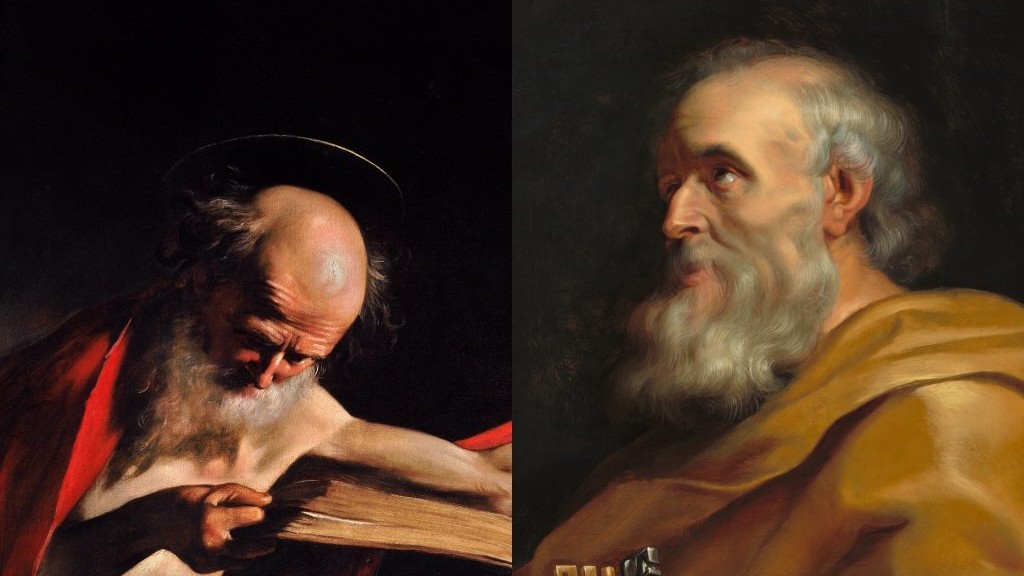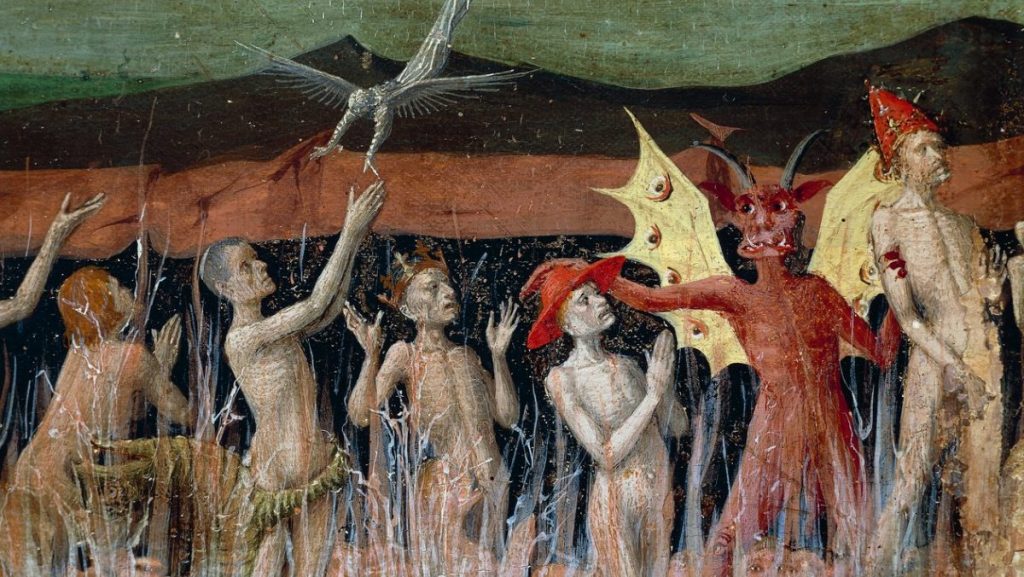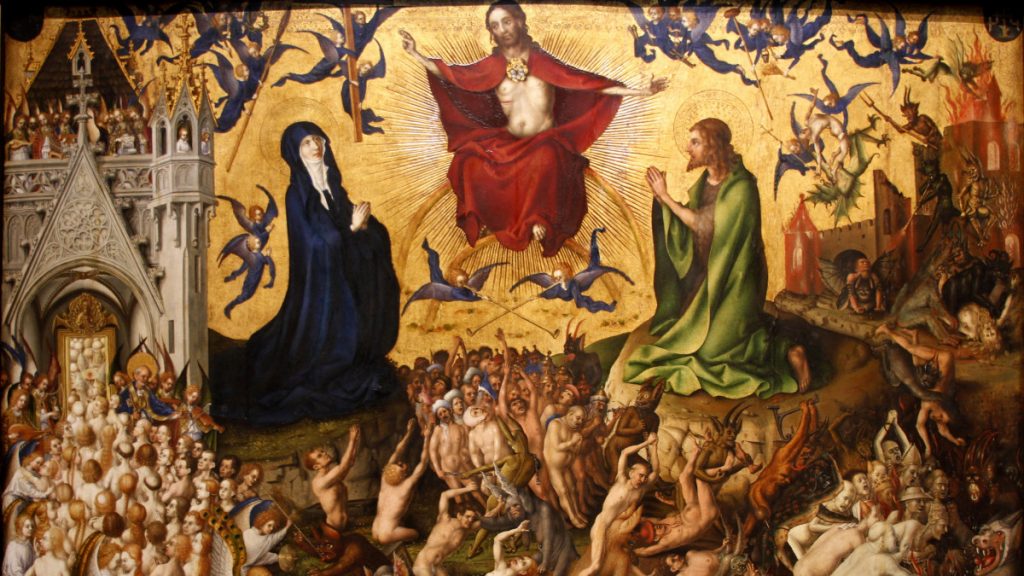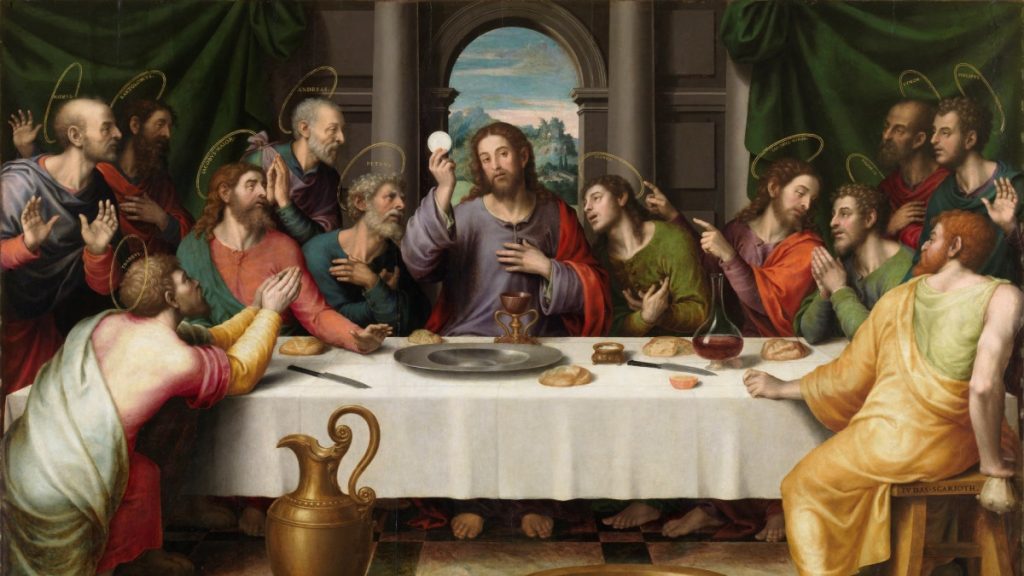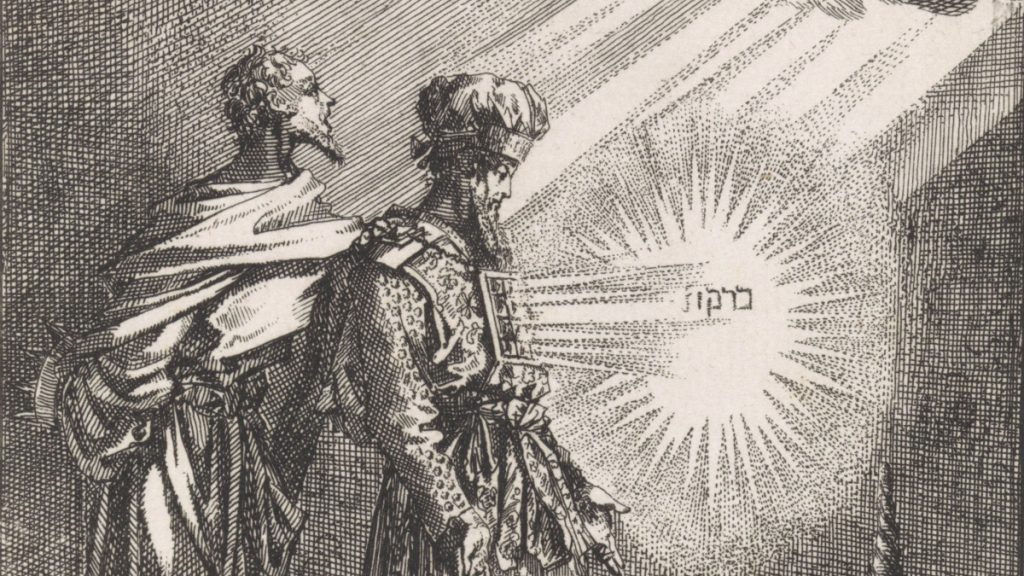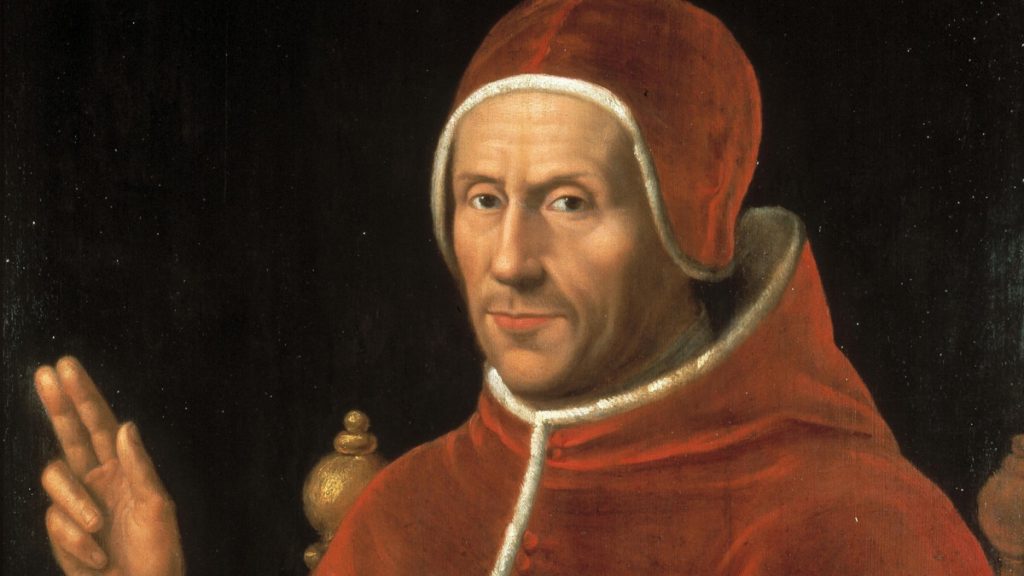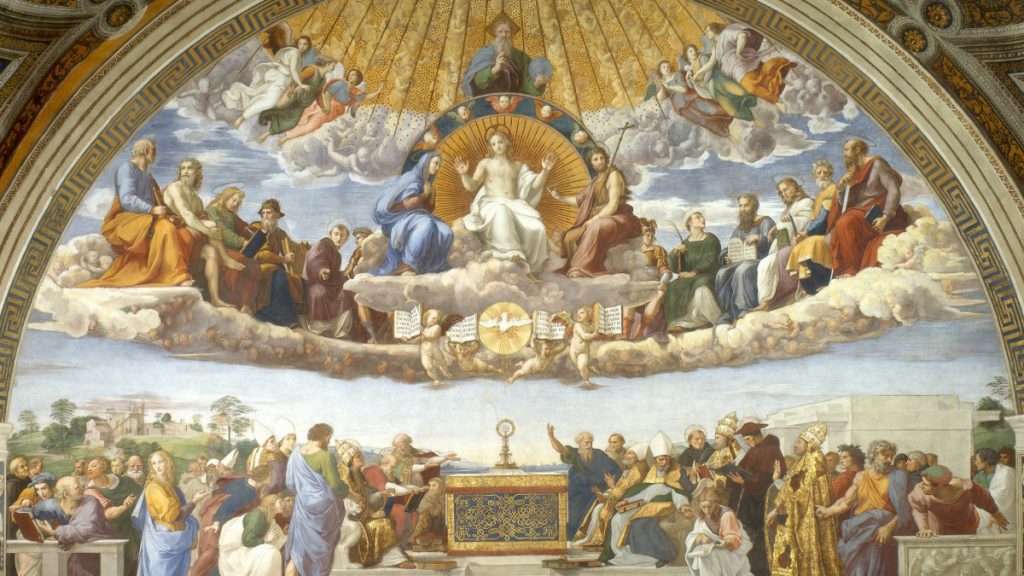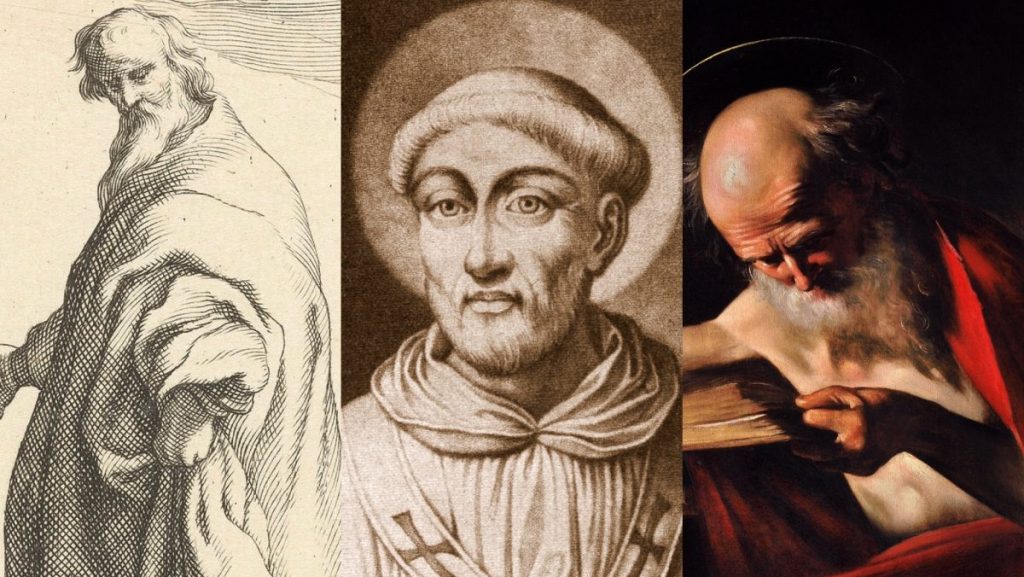(Updated July 24, 2025)
This Author Quote Archive collects pertinent quotes from St. Thomas Aquinas.
Next to each quote are the Topic Quote Archives in which they are included.
This Quote Archive is being continuously updated as research continues. Quotes marked with “***” have not yet been organized into their respective Topic Quote Archives.
Summa Theologiae
II-II, Question 10, Article 11: Whether the rites of unbelievers ought to be tolerated? ***
On the contrary, Gregory says, speaking of the Jews: They should be allowed to observe all their feasts, just as hitherto they and their fathers have for ages observed them.
I answer that, Human government is derived from the Divine government, and should imitate it. Now although God is all-powerful and supremely good, nevertheless He allows certain evils to take place in the universe, which He might prevent, lest, without them, greater goods might be forfeited, or greater evils ensue. Accordingly in human government also, those who are in authority, rightly tolerate certain evils, lest certain goods be lost, or certain greater evils be incurred: thus Augustine says (De Ordine ii, 4): If you do away with harlots, the world will be convulsed with lust. Hence, though unbelievers sin in their rites, they may be tolerated, either on account of some good that ensues therefrom, or because of some evil avoided. Thus from the fact that the Jews observe their rites, which, of old, foreshadowed the truth of the faith which we hold, there follows this good—that our very enemies bear witness to our faith, and that our faith is represented in a figure, so to speak. For this reason they are tolerated in the observance of their rites.
On the other hand, the rites of other unbelievers, which are neither truthful nor profitable are by no means to be tolerated, except perchance in order to avoid an evil, e.g., the scandal or disturbance that might ensue, or some hindrance to the salvation of those who if they were unmolested might gradually be converted to the faith. For this reason the Church, at times, has tolerated the rites even of heretics and pagans, when unbelievers were very numerous.
Biblical Commentaries
St. Thomas Aquinas, Commentary on Jeremiah
(Ch. 31, Lecture 4)1 ***
Second, with regard to the end to which the liberation is directed: “and there is hope for your future” (Jer. 31:17), to signify that in the last times they [the Jews] shall be turned to the true faith and perhaps even to their own land, at the death of the Antichrist.
St. Thomas Aquinas, Commentary on 2 Thessalonians
(Ch. 2, Lecture 1, Commentary on 2:1-5)2
*** Above, the Apostle taught what will happen in the future regarding the punishments of the wicked and the rewards of the good. Here he announces what will happen in the future as regards the dangers to the church that will arise during the time of the Antichrist. And
- First, he sets forth the truth about future dangers;
- Second, he admonishes the Thessalonians to persevere in the truth, there at “therefore, brethren.”
Concerning the first, he does two things, for
- First, he excludes a falsehood;
- Second, he gives instruction regarding the truth, at “for unless.”
And his exclusion of falsehood has three parts, for
- First, he shows that by which they should be persuaded;
- Second, he shows that to which they should be persuaded, at “that you be not easily moved”;
- Third, he forestalls that which could move them, at “neither by spirit.”
Now he persuades them by three means. First, by means of his own prayers, at we beseech you, and not by commanding them. “Having complete confidence to 215 | 216 command you in Christ Jesus to perform the necessary thing, for the sake of charity I rather beseech you” (Philem. 1:8).
Second, by the coming of Christ, which is desirable to the good even though terrifying to the wicked. “Woe to those who desire the day of the Lord” (Amos 5:18); “and not only to me, but also to those who love his coming” (2 Tim. 4:8); “come, Lord Jesus” (Apoc. 22:20).
Third, by the desire and love of the whole congregation of the saints, “unto him,” namely where Christ is, for “where the body is, there will the eagles be gathered” (Matt. 24:28). Or “unto him,” i.e., in the same, for all the saints will be in the same place and glory. “Gather to him his saints” (Ps. 99:5).
But of what is he trying to persuade them? “That you be not easily moved from your sense.” It is one thing to be moved and another to be terrified. Now the one who is moved from his sense loses what he had previously held fast. The Apostle says, in effect, “do not easily let go my teaching. Who easily believes is light of heart” (Sir. 19:4). But terror is a kind of trepidation with fear of what opposes one. And so he says “nor be terrified.” “The sound of terror always in his ears” (Job 15:21). And if there is peace, they always suspect treacheries. “For since wickedness is always fearful, it gives testimony for its own condemnation” (Wis. 17:10).
Then when he says, neither by spirit, he forestalls that which could move them,
- First, in particular,
- Second, in general, at let no man.
Now someone can be deceived by a false revelation. Hence he says, “neither by spirit,” i.e., if someone announces to you as a revelation by the Holy Spirit, or from the Holy Spirit, something contrary to my teaching, do not “be terrified.” “Do not believe every spirit” (1 John 4:1). “Woe to the foolish prophets who follow their own spirit and see nothing” (Ezek. 13:3). “Sometimes even Satan transfigures himself into an angel of light” (2 Cor. 11:14); “I will go out, and I will be a lying spirit in the mouth of all his prophets” (1 Kings 22:22).
Second, someone can also be deceived by reasoning, or a false exposition of Scripture, and so he says “nor by word.” “Their word spreads like gangrene” (2 Tim. 2:17). “Let no one deceive you by foolish words” (Eph. 5:6).
Third, someone can be deceived by an authority quoted but wrongly understood. “As our most beloved brother Paul has written to you in accord with the wisdom given to him, speaking as in all his letters of things in which there are certain points difficult to understand, which the unlearned and unstable twist as they do the other Scriptures” (2 Pet. 3:15-16).
But what were they being deceived about? “As if the day of the Lord were at hand.”
And he says “nor by epistle as sent from us,” because his first epistle to the Thessalonians, if it is not understood well, 216 | 217 seems to say that the Lord’s coming is at hand, as when it says, “then we who are alive” (1 Thess. 4:16).
Then when he says “let no man deceive you by any means,” he says the same thing more generally. “Beware lest you be deceived” (Luke 21:8); “do not be deceived” (1 Cor. 15:33).
Now the reason why the Apostle forestalls this, namely this error concerning the Lord’s coming, is that no prelate should desire that any good be achieved by a lie. “We are even found to be false witnesses” (1 Cor. 15:15). Also, because, the thing believed, namely that the Lord’s day was at hand, was dangerous. First, it could be the occasion of a greater deception, because after the time of the apostles men were going to come who would claim to be Christ. “Many will say: I am he” (Luke 21:8). And so the Apostle did not want them to believe this error regarding the Lord’s coming. Similarly, demons frequently pretend to be Christ, as is clear in the case of blessed Martin [Sulpicius Severus, The Life of St. Martin (Ch. 24)]. And so lest they should be deceived, he did not want them to believe this error. And Augustine gives another reason, namely that it posed a danger to faith. One person would say, “the Lord will come late, and then I will prepare myself for him. Another would say, he will come quickly, and so I am preparing myself now.” Still another would say, “I don’t know when he will come.” And this person speaks best, because what he says agrees with Christ. But the one who says “quickly” errs more seriously, because with the passing of time men would despair, and would think that the Scriptures spoke falsely.
Then when he says “for unless there comes a revolt,” he proceeds to the truth. First he shows what will happen when the Antichrist comes. And two things will happen, one of which will precede the Antichrist’s coming and the other of which is itself his coming.
First comes the “revolt,” which is explained in many different ways in the Gloss. And first it is explained as a revolt from faith, because later the faith would be accepted by the whole world. “And this Gospel of the kingdom will be preached in the whole world” (Matt. 24:14). Therefore this comes before what according to Augustine has not yet been fulfilled, and afterwards many will depart from the faith, etc. “In the last times certain men will depart from the faith (1 Tim. 4:1). The love of many will grow cold” (Matt. 24:12).
Or a “revolt” from the Roman empire, to which the whole world was subject. And Augustine says that this is represented in Daniel by the statues [Dan. 2:31], where four kingdoms are named after whom comes Christ, and that this was a fitting sign because the Roman empire was strengthened for this very purpose, namely that under its power the faith should be preached throughout the whole world.
But how can this be, since the nations have already withdrawn themselves from the Roman empire and yet the Antichrist has still not come?
The answer is that it is not over yet, but has changed from a temporal revolt into a spiritual revolt, as Pope Leo 217 | 218 says in a sermon about the apostles [Sermon 82: On the Feast of the Apostles Peter and Paul (June 29)]. And so one should say that the revolt from the Roman empire should be understood not only as a revolt from the temporal but from the spiritual empire, namely from the Catholic faith of the Roman church. And it is fitting that, as Christ came when the Roman empire held sway over all, so conversely a sign of the Antichrist is revolt against it.
Second, he predicts according to the future, namely, the Antichrist.
- And first, regarding his guilt and punishment;
- Second, regarding his power, at “him whose coming.”
- Again, first he touches generally and implicitly on his guilt and punishment;
- Second, he explains both, at “who opposes.”
He says, therefore: The revolt will come first, and then he will be revealed. According to the Gloss, he is said to be “the man of sin and the son of perdition” because, as the plenitude of virtue abounded in Christ, so a multitude of all sins will abound in the Antichrist. And as Christ is better than all the saints, so that man will be worse than all the wicked. And so he is called “the man of sin,” because he will be wholly given over to sins. But he is not called “the man of sin” in such a way that there could not be a worse man, because evil never corrupts the entire good—although no man could be worse in the actual order of things. But there could be no man better than Christ.
He is also called “the son of perdition,” i.e., consigned to the utmost perdition. “The wicked will be preserved for the day of perdition, and will be led to the day of fury” (Job 21:30). Or “son of perdition,” i.e., of the devil, not by nature but by the completion of his wickedness, which will be completed in him.
And he says “be revealed,” because as all the good deeds and virtues of the saints who came before Christ were figures of Christ, so in all the persecutions of the church the tyrants have been so to speak figures of the Antichrist, and the Antichrist was hidden in them. And so that whole wickedness, which was hidden in them, will be revealed at that time.
Then when he says, “who opposes,” he explains what he said before. And
- First, he shows how he will be the man of sin;
- Second, how he will be the son of perdition, at “and then that wicked one shall be revealed.”
- And first, he foretells his wrongdoing;
- Second, he gives the cause for it, at “and now.”
- And first, he describes the wrongdoing;
- Second, he says that he is not announcing a new teaching, at “do you not remember.”
- And first, he sets out the wrongdoing;
- Second, the sign of it, at “so that.” 218 | 219
Now his wrongdoing has two sides to it. First, opposition to God; hence he says “who opposes” all the good spirits. “He charged against God with an upraised neck, and with a fat neck, and he is armed, as are his members” (Job 15:26). “Their tongues and their schemes are against the Lord, that they may provoke the eyes of his majesty” (Isa. 3:8).
Second, he puts himself above Christ; and so he says “and is lifted up.”
The name “God” is said in three ways. First, according to nature: “hear, O Israel, the Lord your God is one God” (Deut. 4:4). Second, according to opinion: “all the gods of the nations are demons” (Ps. 95:5). Third, by way of participation: “I have said, you are gods” (Ps. 81:6). And the Antichrist would put himself over all these: “he will be lifted up and will magnify himself against ever god, and against the God of gods he will speak great things” (Dan. 11:36). ***
When he says “so that he sits in the temple of God, showing himself as if he were God,” he gives the sign of this wrongdoing. For the Antichrist’s pride is greater than the pride of all who came before him. So as it is written of Gaius Caesar that he wanted to be worshiped while he was still alive, and put statues of himself in every temple, and as Ezekiel says of the king of Tyre, “I have said that I am God” (Ezek. 28:2), so it is quite believable that the Antichrist will act as they did, saying that he is both God and man. And as a sign of this he will sit in the temple.
But in what temple? Was it not destroyed by the Romans? This is why some say that the Antichrist is from the tribe of Dan, whose tribe is not named among the other twelve in Revelation (Apoc. 7:5). Because of this, the Jews will accept him at first, and will rebuild the temple in Jerusalem, and thus Daniel will be fulfilled: “an abomination and an idol will be in the temple” (Dan. 11:27). “But when you see the abomination of desolation spoken of by Daniel the prophet standing in the holy place, let him who reads understand” (Matt. 24:15).
But some say that neither Jerusalem nor the temple will ever be rebuilt, but that their desolation will last until the final consummation. And even some Jews believe this. So this text is explained to mean “in the temple of God,” i.e., in the Church, since many from the church will accept him. Or according to Augustine, “he sits in the temple of God,” i.e., he rules and governs as though he himself with his messengers were the temple of God, as Christ is the temple with his adherents.
Then when he says, “do you not remember,” he shows that he is writing nothing new, as though to say: when I was with you long ago, I said this. “I do not write a new command for you, but an old command, which you have had from the beginning” (2 John 5); “as we are in word by epistles when absent, such also we will be indeed when present” (2 Cor. 10:11).
(Ch. 2, Lecture 2, Commentary on 2:6-10)3 ***
Above, the Apostle foretold the coming and the wrongdoing of the Antichrist; here he explains the reason for its delay. And
- First, he shows that they know this cause;
- Second, he sets out this cause in an obscure manner, at “for the mystery.”
He says, therefore: I say that the man of sin must be revealed. “And now you know what withholds,” i.e., what is the cause of his delay. “You know,” because I spoke to you about it, so that he is withheld in this way at the present time, that “in his time,” i.e., at a fitting time, “he may be revealed.” “There is a time and an occasion for every business” (Ecc. 8:6); “God has made all things good in their name” (Ecc. 3:11).
Then when he says, “for the mystery,” he sets out the reason for the delay. And this text has been explained in many ways, because the word “mystery” can be either in the nominative case or in the accusative case.
If it is nominative, the meaning is this: I say that he will be revealed in his own time, because already the mystery, i.e., a thing hidden after the manner of a figure, is at work, in false men who seem good and yet are evil. And these play the role of the Antichrist. “Having the appearance of religion, but denying its power” (2 Tim. 3:5).
But if it is accusative, then the meaning is this: the Devil, in whose power the Antichrist will come, has already secretly begun to work his wickedness through tyrants and deceivers, because the persecutions of the church of this 220 | 221 time are figures of that final persecution of all good men, and are as it were imperfect by comparison with it.
“Only so that he who now holds, should hold until he be taken out of the way.” This has been explained in many ways. One way is in accord with the Gloss and with Augustine, who say that that some thought that Nero, who first persecuted the Christians, was the Antichrist, and that he was not killed but taken away, and that at some time he will be brought back. Hence the Apostle, nullifying this, says “only so that he who now holds” the Roman empire “should hold until he be taken out of the way,” i.e., until he dies. But this way of interpreting the text is not fitting, because it has been many years since Nero died; he died in the same year as the Apostle. But it is better to refer it to Nero insofar as he was a public person of the Roman empire: “until he be taken out of the way,” i.e., until the Roman empire is removed from this world. “The Lord of hosts has planned this, that he may take away the pride of every glory, and bring to disgrace” (Isa. 23:9).
Or taken another way, “only so that he who now holds,” i.e., who now restrains the Antichrist’s coming, “should hold,” lest he come. As much as to say, it is necessary as yet for some to come to the faith and others to withdraw. He says, in effect, as a departure or as an approach let him “who now holds” until he comes “should hold until” that foul man is taken away. Or it can be taken this way: “only so that he who now holds” the faith “should hold,” i.e., be strong in it. “Hold what you have, that no one take your crown” (Apoc. 3:11). “Until he be taken out of the way,” i.e., until the intermingled congregation of the wicked be separated and come to be separate, which will happen during the Antichrist’s persecution.
Or “only so that he who now holds, should hold,” i.e., that the mystery of iniquity, i.e., the secret iniquity, which now holds back, let it hold back “until he be taken out of the way,” i.e., until the iniquity is brought before the public and becomes as it were something public and common. For many now sin secretly, but at some point sin will be committed openly; for God endures sinners so long as they are hidden, until they sin publicly, and then he no longer endures them, as is clear in the case of the Sodomites (Gen. 19:24).
But Augustine confesses that he does not know what the Apostle said to them, which they already knew. Hence he says, “now you know what withholds.” And beyond this there was not much necessary to know.
Then when he says, and then, the wicked man’s coming is set out, and his punishment. First, his appearance, and second, his punishment.
Regarding the first he says “that” singularly “wicked one shall be revealed,” because his wrongdoing will be manifest, “whom the Lord Jesus shall kill with the Spirit of his mouth.” “The zeal of the Lord of hosts will accomplish this” (Isa. 9:7), i.e., the zeal for justice, which is love. For the Spirit of Christ is the love of Christ, and this is the zeal of the Holy 221 | 222 Spirit, which he has for the Church. Or “with the spirit of his mouth,” i.e., his command, for Michael will kill him on Mount Olivet whence Christ ascended. So also Julian was killed by the hand of God.
And this is his punishment in the present time, although in the future he will also be punished eternally, because Christ “shall destroy with the brightness of his coming,” i.e., bringing all things to light at his coming. “He will bring to light the hidden things of darkness” (1 Cor. 4:5). And he “shall destroy,” I say, namely by eternal damnation. “He will destroy them” (Ps. 27:5). And he says “with the brightness” because the Antichrist himself will seem to darken the church, but the darkness will be driven out by brightness; for whatever the Antichrist claims will be shown to have been a lie.
Then when he says him, whose coming, he foretells the Antichrist’s power. And concerning this he does two things, for
- First, he sets out the one who stands behind this power;
- Second, how he will deceive;
- Third, he describes those who will be deceived.
The one who stands behind the power is the Devil, and so Christ will destroy him. “For this purpose the Son of God appeared, to destroy the works of the Devil” (1 John 3:8). And this is why he says that the Antichrist’s “coming” will be “according to the working of Satan,” i.e., at his inspiration. “Satan will be released from his prison, and he will go out and will deceive the nations” (Apoc. 20:7).
For one way something can be done “according to the working of Satan” is as in the possessed, in whom Satan not only inspires the will but also impedes the use of reason. The possessed person is not considered culpable for his actions, because he does not have the use of free will. But the Antichrist will not be like this, but will have the use of free will, and the Devil will be in him making suggestions as is written of Judas: “Satan entered into him” (John 13:27), namely by inspiring him to act.
Now he will deceive in this way: first, by his worldly power; second, by his power of working miracles.
As regards the first, he says, “in all power,” namely worldly power. “And he shall have power over the treasures of gold, and of silver, and all the precious things of Egypt” (Dan. 11:43). Or “power,” namely pretended power.
As regards the second, he says, “and signs and lying wonders.” Signs are a kind of marvel, including small things, but prodigies are great works produced by someone prodigious, being, as it were, far from the finger. “He works great signs, so that he even causes fire to fall from heaven” (Apoc. 13:13). “They will work great signs and prodigies so that they would even lead into error the elect, were it possible” (Matt. 24:24). 222 | 223
And he says, “lying.” Miracles are called “lying” either because they fall short of the true nature of the supposed deed, or because they fall short of the true nature of a miracle, or because they fall short of the due end of a miracle. The first is what happens in illusions, when the senses are duped by demons so that things seem other than they are, as when Simon Magus caused a ram to be decapitated and later displayed it alive. A man was also decapitated, and later the man, whom all believed had been decapitated, was shown to be alive, and was thought to have been resuscitated. And men do this by rearranging phantasms and deceiving.
In a second way, those are called miracles in an improper sense which are full of wonderment because, although the effect is seen, the cause is unknown. Therefore, things that have a cause hidden to somebody but not hidden simply speaking are called marvels, and not miracles simply speaking. But things whose cause is hidden simply speaking are called miracles in the proper sense of the word, and their cause is the glorious God himself, because they transcend the whole order of creature nature. But sometimes marvels come to pass which are not beyond the order of nature yet have hidden causes, and this is much more the kind of thing demons do. The demons know the powers of nature, and they have determinate abilities to work particular effects. So the Antichrist will work these sorts of things, but they will not have the true nature of a miracle because the demons have no power to work what goes beyond nature.
In a third way things are called miracles according as they are ordered to bearing witness to the truth of the faith, to leading believers to God. “The Lord working with them and confirming their words by the accompanying signs” (Mark 16:20). But if someone has the glory of miracles and does not use them for this purpose, they are miracles indeed as regards the nature of the thing done, as regards the nature of a miracle, but they are false with respect to their due end and God’s intention. Yet the Antichrist’s works will not be of this sort, because no one works true miracles against the faith, since God is not a false witness. Hence someone preaching a false doctrine cannot work miracles, even though someone leading a bad life can.
Then he sets out those who will be deceived, when he says “to those who perish,” i.e., among those who God foreknows will perish. “None of them was lost save the son of perdition” (John 17:12). And this is because “my sheep hear my voice” (John 10:27).
Footnotes
- St. Thomas Aquinas, Rev. Benjamin Martin, trans., Latin/English Edition of the Works of St. Thomas Aquinas, Vol. 31: Commentary on Jeremiah and Lamentations (Green Bay, WI: Aquinas Institute, Inc., 2023), 339. ↩︎
- St. Thomas Aquinas, F.R. Larcher, OP, trans., Latin/English Edition of the Works of St. Thomas Aquinas, Vol. 40: Commentary on the Letters of Saint Paul to the Philippians, Colossians, Thessalonians, Timothy, Titus, and Philemon (Lander, WY: The Aquinas Institute for the Study of Sacred Doctrine, 2012), 215-19. ↩︎
- St. Thomas Aquinas, F.R. Larcher, OP, trans., Latin/English Edition of the Works of St. Thomas Aquinas, Vol. 40: Commentary on the Letters of Saint Paul to the Philippians, Colossians, Thessalonians, Timothy, Titus, and Philemon (Lander, WY: The Aquinas Institute for the Study of Sacred Doctrine, 2012), 220-23. ↩︎
